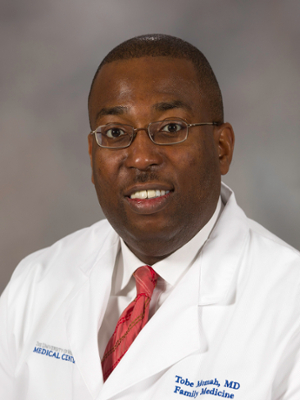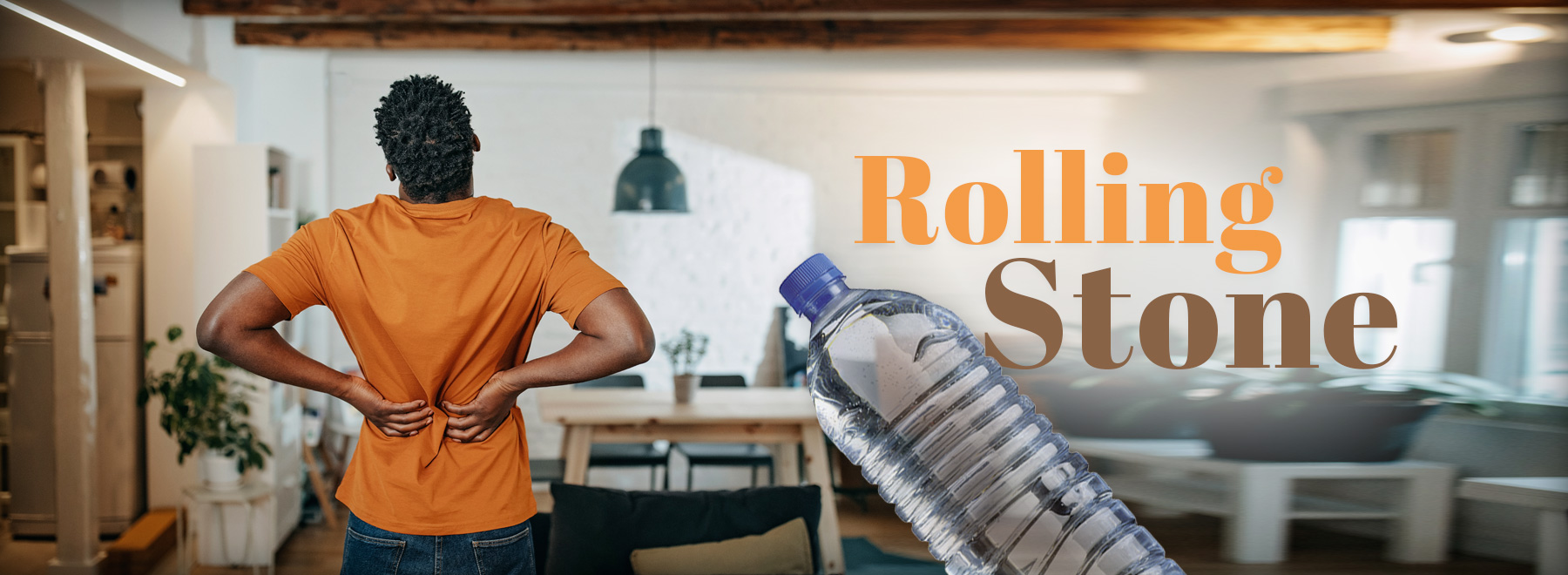Staying hydrated helps prevent kidney stones
If you’ve resorted to an emergency room for the severe pain caused by kidney stones, you’re one in half a million.
That’s how many people annually seek emergency care for kidney stones, the National Kidney Foundation estimates. One in 10 people will have a kidney stone at some point in their lives, experts say.

“They are common in the summer months, when people can get dehydrated,” said Dr. Tobe Momah, an associate professor in the Department of Family Medicine at the University of Mississippi Medical Center. “We tell people that the lack of fluids could be the No. 1 reason for getting them.”
Kidney stones are hard, stone-like particles made from chemicals in urine. Urine also has various wastes dissolved in it.
The chemicals are supposed to be eliminated in urine by the kidneys. But if there’s too much waste and too little urine, crystals begin to form. The crystals join together to form a solid that gets bigger unless it passes out of the body through urine – but sometimes the stones stay in the kidney, or travel down the urinary tract into the ureter but no further.
That blockage can cause a backup of urine in the kidneys, ureter, bladder or urethra, causing pain that can be severe.
The first signs of a kidney stone can be pain in the back, sides and lower spine, Momah said. “The pain is typically from the flank to the genital area,” he said “It’s compared to pregnancy by some women. Some say it’s more painful than delivering a baby.”
Other classic signs include urine that is dark or contains blood, Momah said. “Some people have nausea and vomiting, but it’s usually mostly abdominal pain.”
Most kidney stones are about the size of a chickpea, but they can be as small as a grain of sand, or even approach the size of a pebble or even a golf ball. Something of that size has to pass through a patient’s urinary tract or be removed surgically in order to exit the body.
Most of the time, kidney stones pass and don’t cause any damage, but usually with a lot of pain. Doctors prefer the stones exit the body this way. The patient might be asked to drink a lot of water to produce urine that can flush out stones. There also are medications to make urine less acidic.
Stones that are large, block the flow of urine or cause an infection are generally removed with surgery.
There are steps patients can take to both seek treatment for kidney stones, and to prevent them, Momah said. “A lot of people, because of the severity of the pain, end up in the emergency room. Other patients come to a clinic with pain that is progressing,” he said.
“If it’s progressing and gets worse despite the person taking Tylenol and Advil, they definitely need to get in touch with their primary care provider.”
Stones that are larger than five or six millimeters probably won’t exit the body through urine, Momah said. “Smaller than that will probably pass if you drink a lot of liquids,” he said.
Watching your diet can go a long way toward preventing kidney stones, Momah said.
“Avoid sodas,” Momah advises. “They have high phosphates that increase the risk of kidney stones. Drink three or four liters of water a day, and avoid high cholesterol, red meat and fatty foods. Eat lots of fruits and vegetables.
“Coffee is a diuretic and makes you urinate a lot, but it also dehydrates you.”
And, be aware that if you’ve had kidney stones once, chances are you will have them again
“Kidney stones have been around since the days of the Roman Empire,” Momah said. “If you keep a kidney stone long enough, it can become deadly and lead to septic shock, because the urine has nowhere to go. So, a stitch in time saves nine.”
The above article appears in CONSULT, UMMC’s monthly e-newsletter sharing news about cutting-edge clinical and health science education advances and innovative biomedical research at the Medical Center and giving you tips and suggestions on how you and the people you love can live a healthier life. Click here and enter your email address to receive CONSULT free of charge. You may cancel at any time.



